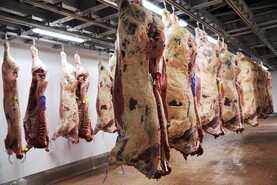While agriculture, more than any other industry has always been shaped by global and local politics, it will be even more apparent in 2017. Markets are important but even these to a greater or lesser extent are controlled by political influence and sense of national identity.
The best example we have of this is the huge premium that is obtainable for Red Tractor UK-origin beef from British consumers.
Elsewhere in the US we have president-elect Trump proclaiming that the US will focus on producing and consuming all things American. This doesn’t bode well for exporters to that country and the Irish dairy industry will be concerned.
We have long lived with tariffs loaded on popular products, with low tariffs on extinct or little-demanded products in the US, but we sense the bar to supply will be raised even higher should preselection pledges be delivered.
As for trade agreements, while EU-US negotiations on TTIP have been struggling, we must remain alert to negotiations with other major food exporting regions such as Australia and New Zealand.
Meanwhile, the agreement with Canada will kick in provisionally after ratification by the European Parliament in February which will bring up to 50,000t of extra beef into Europe though product will go from Europe to Canada as well.
Mercosur, particularly Argentina, is really keen to get a Free Trade Agreement (FTA) with Europe which as the cumulative impact assessment shows, has no upside for agriculture. Japan offers more possibilities for agriculture and we may see developments there in 2017.
Aside from FTAs, we have the spectre of Brexit looming over our industry south of the border from a market perspective, while Northern Ireland farmers await what shape a new farm policy will take. While concerns of beef farmers at present are focused on increased cattle supplies coming on stream in 2017, currency volatility could play a much bigger role in setting cattle prices. North of the border , while farm incomes received a much-needed boost from the sterling collapse, in the wake of Brexit the new made-in-Whitehall farm policy is awaited with some trepidation.
For southern farmers, the new CAP, about which negotiations begin with a consultation in the new year, is equally a cause for concern. This is particularly the case as the budget, which will come on the agenda in late 2017, will be under pressure with the UK probably gone.
The commissioner has already outlined the three themes that will motivate his thinking, recognising that last time round they didn’t have the toolbox to deal adequately with market issues. The environmental and sustainability issue will be even more prominent next time round and they have the ambition to get more young people into farming.
There is no doubt these are noble objectives and, while there is a fair wind in the Commission, in favour of agriculture, we cannot expect an easy negotiation. However, there is a prize there worth winning. The present CAP has failed good productive farmers and that has to be addressed next time round.
We leave behind in 2016 a difficult year for all commodities with arable farmers having yet another bad year, the remains of our pig industry almost wiped out by market collapse early in the year and dairy sector hitting the floor mid-year before modest recovery. Beef prices were on par with other eurozone areas up until the Brexit vote which hit Irish prices at a time UK prices improved. The lamb trade fluctuated in the usual seasonal way but overall was one of the more stable sectors in 2016. Market developments in 2017 will be essential and welcome but expect political influences to be the prime drivers of farm income.






 This is a subscriber-only article
This is a subscriber-only article










SHARING OPTIONS: